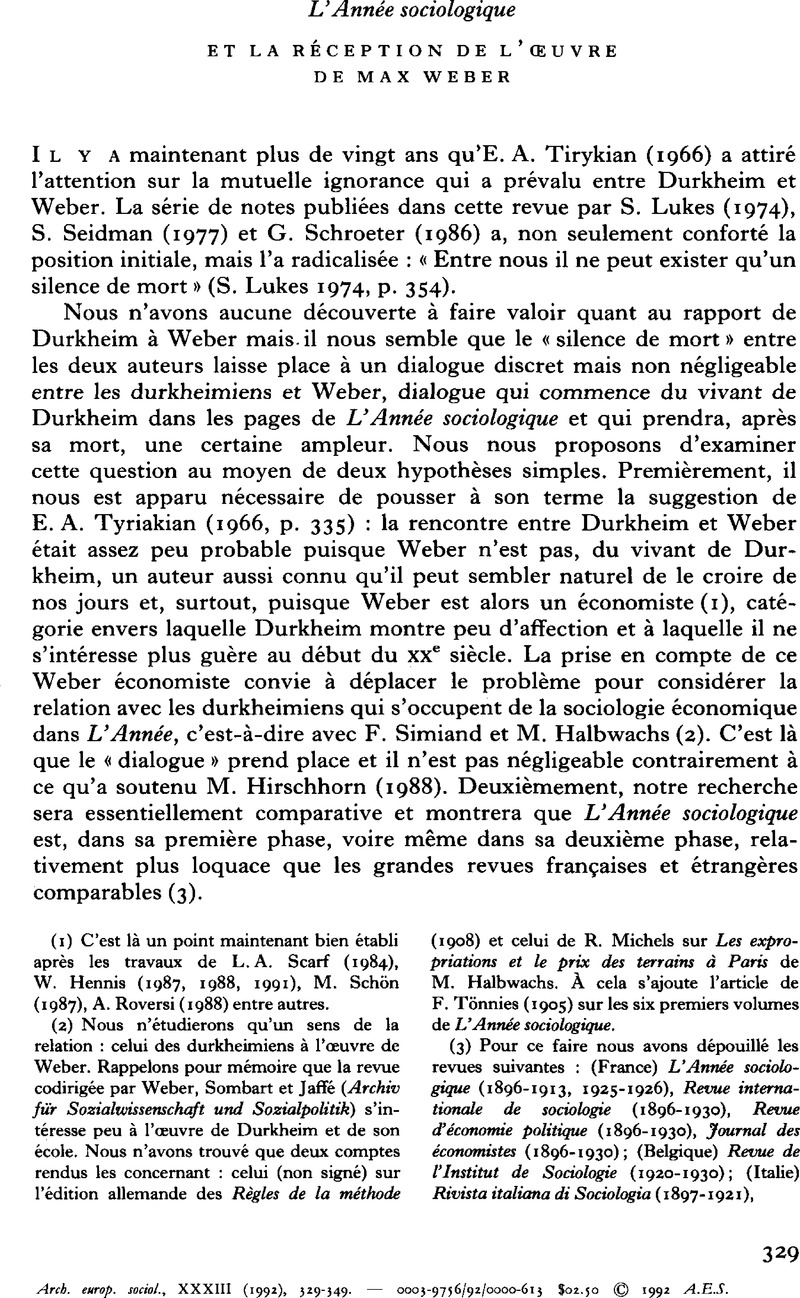Crossref Citations
This article has been cited by the following publications. This list is generated based on data provided by Crossref.
Steiner, Philippe
1995.
Economic sociology: a historical perspective.
The European Journal of the History of Economic Thought,
Vol. 2,
Issue. 1,
p.
175.
Mucchielli, Laurent
1998.
La découverte du social.
p.
537.
Szakolczai, Arpád
1998.
Reflexive Historical Sociology.
European Journal of Social Theory,
Vol. 1,
Issue. 2,
p.
209.
Gislain, Jean-Jacques
Steiner, Philippe
and
Holland, John
1999.
American Institutionalism and Durkheimian Positive Economics: Some Connections.
History of Political Economy,
Vol. 31,
Issue. 2,
p.
273.
Steiner, Philippe
2003.
Durkheim's sociology, Simiand's positive political economy and the German historical school.
The European Journal of the History of Economic Thought,
Vol. 10,
Issue. 2,
p.
249.
Steiner, Philippe
2003.
Le problème de la preuve et ses effets sur la constitution de la sociologie.
Revue européenne des sciences sociales,
p.
93.
2005.
L'École durkheimienne et l'économie.
p.
331.
Masson, Philippe
2005.
Premières réceptions et diffusions des Héritiers (1964-1973).
Revue d'Histoire des Sciences Humaines,
Vol. 13,
Issue. 2,
p.
69.
Truc, Gérôme
2010.
Esquisse d’une sociologie de la théologie.
Archives de sciences sociales des religions,
p.
155.
Steiner, Philippe
2012.
Religion und Wirtschaft. Mauss, Simiand und das Durkheim’sche Programm.
Berliner Journal für Soziologie,
Vol. 22,
Issue. 4,
p.
473.
Terrier, Jean
2017.
Law contra sociology: The critique of the social sciences, especially Durkheimian sociology, by Kelsen and Schmitt.
Journal of Classical Sociology,
Vol. 17,
Issue. 4,
p.
309.
Marcel, Jean-Christophe
2021.
Halbwachs, lecteur de l’Éthique protestante.
Revue européenne des sciences sociales,
Vol. 59-1,
Issue. ,
p.
117.



